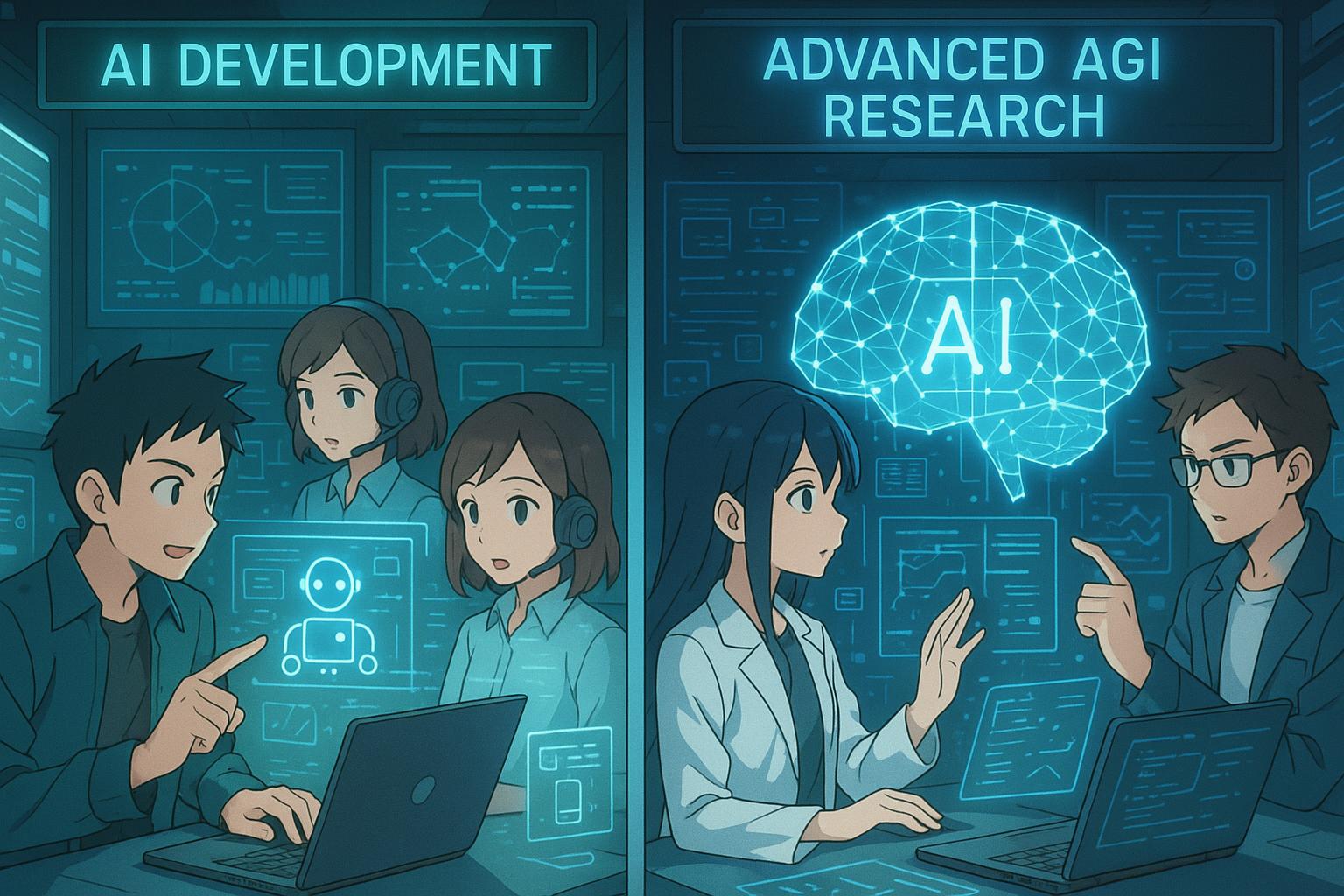Meta Platforms Inc., the tech giant behind popular platforms like Facebook and Instagram, has initiated a significant reorganisation of its artificial intelligence (AI) division. This restructuring is particularly aimed at enhancing product development and sharpening the company's competitive edge in an increasingly fast-paced AI landscape. The split comes in response to heightened competition from firms like OpenAI, Google, and ByteDance, who have been making considerable strides in the AI sector.
The company has established two distinct units within its AI teams: one tasked with consumer-facing AI products and another focused on foundational research into artificial general intelligence (AGI). This dual approach is expected to balance immediate market needs with longer-term innovation objectives. According to reports, the AI products team will work on integrating AI features throughout Meta's extensive ecosystem, encompassing Facebook, Instagram, WhatsApp, and emerging standalone AI applications. Meanwhile, the AGI Foundations unit is set to enact deeper explorations into advanced research, leveraging the success of Meta’s Llama language models, which have become popular within the developer community due to their open-source nature.
This restructuring is primarily about enhancing focus rather than downsizing, as there have been no layoffs associated with this move. Instead, the aim is to optimise workflows and speed up the rollout of user-facing features, such as intelligent chatbots and sophisticated content recommendations. The AGI Foundations team, free from the pressure of immediate product deadlines, is anticipated to pursue ambitious research objectives that could pave the way for Meta to emerge as a frontrunner in the AGI field—a technology that aims to replicate human-like reasoning across a wide range of tasks.
However, the timing of this reorganisation highlights Meta CEO Mark Zuckerberg's awareness of the company's perceived lag in the AI race. Despite achievements such as the Llama models, Meta often finds itself overshadowed by the rapid advancements made by competitors, particularly with high-profile launches such as OpenAI's ChatGPT. The restructuring aims to remedy this gap, ensuring that Meta's consumer products remain at the forefront while still nurturing substantial research initiatives.
As the AI sector continues to evolve, the need for swift adaptation is imperative. Tech industry analysts have pointed out that competitors like Google have deeply embedded AI capabilities within their search and cloud services, while TikTok effectively utilises advanced algorithms to enhance user engagement. By adopting this new dual-team structure, Meta seeks to maintain pace with these competitors. The consumer AI team’s emphasis on rapid deployment could see new innovations reaching millions of users sooner than expected.
Beyond the immediate implications for product development, Meta's continued commitment to AGI represents a broader strategic vision. Although this ambitious pursuit entails risks—such as the potential dilution of focus across both teams—the potential for groundbreaking advancements remains significant. There is a palpable sense of anticipation regarding how well Meta can balance short-term goals with visionary research, especially in a landscape where the cycles of innovation are unrelentingly short.
Critically, this restructure comes amid a backdrop of other internal changes within Meta. The disbanding of its Responsible AI division has raised eyebrows; this team, which initially comprised 40 members and was tasked with ensuring ethical AI deployment, has seen its size and scope dramatically reduced. Many members have been reassigned to other areas, primarily focusing on generative AI projects. This shift signifies not only a change in personnel but also a strategic pivot towards prioritising immediate product-level advancements over regulatory and safety considerations, raising questions about the company's approach to ethical AI practices.
Ultimately, Meta's restructuring of its AI division represents a decisive commitment to not only remain competitive but to lead in the evolving AI arena. The company’s ability to effectively synergise its newly formed teams will be crucial, as will its capacity to translate innovative ideas into measurable outcomes. As industry observers await Meta's forthcoming moves, it's clear that the decisions made during this transformative period could define the company’s trajectory in AI for years to come.
Reference Map:
- Paragraph 1 – [1], [2]
- Paragraph 2 – [1], [4]
- Paragraph 3 – [2], [3]
- Paragraph 4 – [1], [7]
- Paragraph 5 – [5], [6]
- Paragraph 6 – [1], [4]
Source: Noah Wire Services
